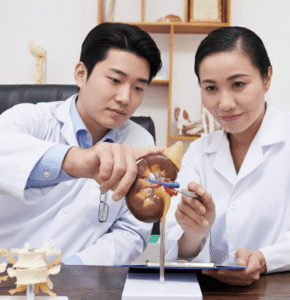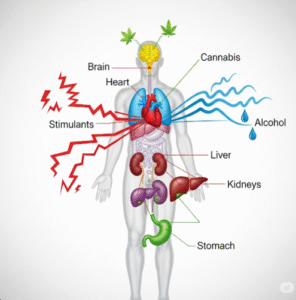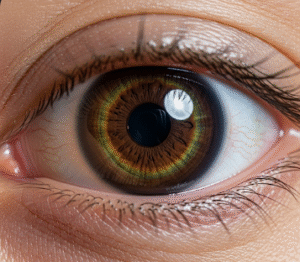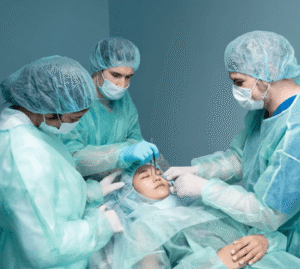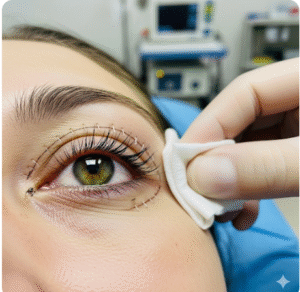Overview
Koolen-de Vries Syndrome (KdVS) is a rare genetic disorder characterized by developmental delays, intellectual disability, distinctive facial features, and various medical issues. First described in 2006, this syndrome results from a deletion or mutation on chromosome 17q21.31 affecting the KANSL1 gene. In Korea, genetic clinics and pediatric specialists provide early diagnosis and multidisciplinary management to support affected children and families, aiming to improve developmental outcomes and quality of life.
What Is Koolen-de Vries Syndrome?
Koolen-de Vries Syndrome is caused by a microdeletion or mutation involving the KANSL1 gene on chromosome 17. This genetic alteration disrupts normal brain development and other body systems, leading to a spectrum of clinical features. The syndrome is typically diagnosed in infancy or early childhood when developmental delays and characteristic symptoms become apparent. It is a lifelong condition requiring ongoing care and support.
Symptoms
- Developmental delay, especially in speech and motor skills
- Intellectual disability ranging from mild to moderate
- Distinctive facial features, including:
- A long face
- Prominent eyebrows
- Wide-set eyes (hypertelorism)
- A broad nasal bridge and bulbous nasal tip
- Hypotonia (low muscle tone), causing poor muscle strength and coordination
- Feeding difficulties during infancy
- Behavioral issues such as hyperactivity, attention deficits, or autistic-like behaviors
- Seizures in some cases
- Heart defects and kidney abnormalities in some affected individuals
- Joint hypermobility and skeletal anomalies
Causes
KdVS results from a deletion or mutation in the KANSL1 gene located on chromosome 17q21.31. This gene plays a critical role in regulating gene expression during development. The genetic change is usually sporadic, occurring as a new mutation in the affected child rather than inherited from the parents. However, rare familial cases due to inherited mutations have been reported.
Risk Factors
- No known environmental risk factors as KdVS is genetic and typically arises de novo (new mutation)
- Family history is usually negative, but genetic counseling is recommended for families with affected members
Complications
- Delays in achieving developmental milestones affecting independence
- Learning difficulties and educational challenges
- Behavioral problems impacting social interactions and daily life
- Medical complications such as seizures or heart defects requiring treatment
- Feeding and swallowing difficulties affecting nutrition and growth
- Potential respiratory issues due to hypotonia
Prevention
Since Koolen-de Vries Syndrome is a genetic disorder caused by spontaneous mutation, primary prevention is not currently possible. However:
- Genetic counseling can help families understand recurrence risks for future pregnancies
- Prenatal testing may be offered if there is a known familial mutation
Treatment Options in Korea
Management of Koolen-de Vries Syndrome focuses on supportive care and addressing individual symptoms through a multidisciplinary approach:
- Early Intervention:
- Physical therapy to improve muscle tone, coordination, and motor skills
- Speech and language therapy to support communication development
- Occupational therapy to enhance daily living skills and sensory integration
- Medical Management:
- Treatment of seizures with antiepileptic medications if present
- Monitoring and managing heart or kidney anomalies through cardiology and nephrology consultations
- Nutritional support for feeding difficulties
- Behavioral and Educational Support:
- Behavioral therapy to address hyperactivity, attention deficits, or autism spectrum features
- Specialized educational programs tailored to the child’s cognitive abilities
- Genetic Counseling and Family Support:
- Counseling for families regarding diagnosis, prognosis, and family planning
- Support groups and resources for affected families
Korean genetic and pediatric clinics emphasize personalized, multidisciplinary care to optimize developmental progress and improve quality of life for children with Koolen-de Vries Syndrome.


